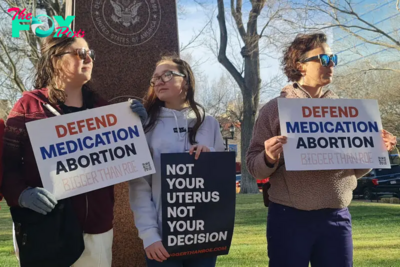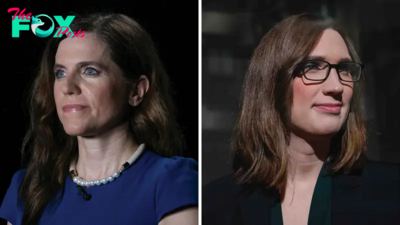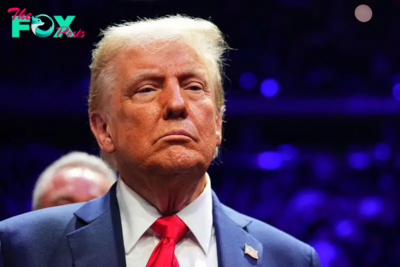Politics
Yes, Donald Trump has a point about political prosecution
The facts and the law behind New York District Attorney Alvin Bragg’s successful prosecution of Donald Trump could be argued at length. But as a government prosecutor for 30 years, I have been most interested in the ethics of prosecuting that case.
Outside the courthouse after the verdict, Trump said, “This was a disgrace.” That echoes comments made over the year since his indictment in the case in which Trump repeatedly claimed the prosecution was “political persecution.”
There’s merit to his point.

No one better outlined the important ethical standards that have enabled state and federal prosecutors to maintain an image of integrity and honesty than Supreme Court Justice Robert Jackson. In a speech to the nation’s federal prosecutors on April 1, 1940, he noted that prosecutors should select cases where the offense is “most flagrant and the public harm the greatest,” while warning that the prosecutor’s ability to choose defendants is the “most dangerous power.”
Choosing defendants, Jackson said, requires judgment. It is a power that can be abused.
“With the law books filled with a great assortment of crimes, a prosecutor stands a fair chance of finding a technical violation of some act on the part of almost anyone,” Jackson said. In certain cases, he said, “it is not a question of discovering the commission of a crime and then looking for the man who has committed it, it is a question of picking the man and then searching the law books, or putting investigators to work, to pin some offense on him.”
It is when the prosecutor “picks some person whom he dislikes or desires to embarrass, or selects some group of unpopular persons and then looks for an offense, that the greatest danger of abuse of prosecuting power lies,” Jackson warned.
For years, as a federal prosecutor, I had been proud to stand up before the juries and announce, “Ron Sievert for the United States.” I believed that the majority of those in the courtroom understood that the federal government traditionally prosecuted cases that were the “most flagrant.” These were cases where, as Jackson said, “the public harm” was “the greatest.”
We prosecutors preserved our reputation of not prosecuting cases for political reasons by only pursuing cases where there were real victims, in the sense of bodily harm or financial loss. The U.S. Department of Justice had an unwritten but long-understood policy of never indicting and trying a politician for a nonviolent crime within one year of an election.
New York’s prosecution of Donald Trump can be, and has been, characterized long before today by some as a “political prosecution” because of the strong belief that a case on an allegedly false record would never have been brought if Trump were not running for president.
Justice Jackson warned that such a case, without an apparent victim, could undermine the public’s perception of the prosecution’s legitimacy. This prosecution may have upset Trump, but the real question is: Will it damage the good faith – both in the United States and internationally – that has been earned for decades by American public prosecutors?
-

 Politics11h ago
Politics11h agoWhy Trump Actually Needs Mexico
-

 Politics11h ago
Politics11h agoMan Convicted of Killing Laken Riley Sentenced to Life in Prison Without Parole
-

 Politics17h ago
Politics17h agoHow the Biden Administration Protected Abortion Pill Access—and What Trump Could Do Next
-

 Politics17h ago
Politics17h agoWhy Trump’s Tariffs Could Raise Grocery Prices
-

 Politics1d ago
Politics1d agoThe First Trans Member of Congress Expected Pushback Like Mace’s Bathroom Rule
-

 Politics1d ago
Politics1d agoNew York Prosecutors Oppose Dismissing Trump’s Hush Money Conviction
-

 Politics1d ago
Politics1d agoWhite House Christmas Tree Is a Symbol of Resilience for Hurricane-Hit North Carolina Farms
-

 Politics2d ago
Politics2d agoHakeem Jeffries Wins Reelection as House Democratic Leader Despite Party’s Losses




















